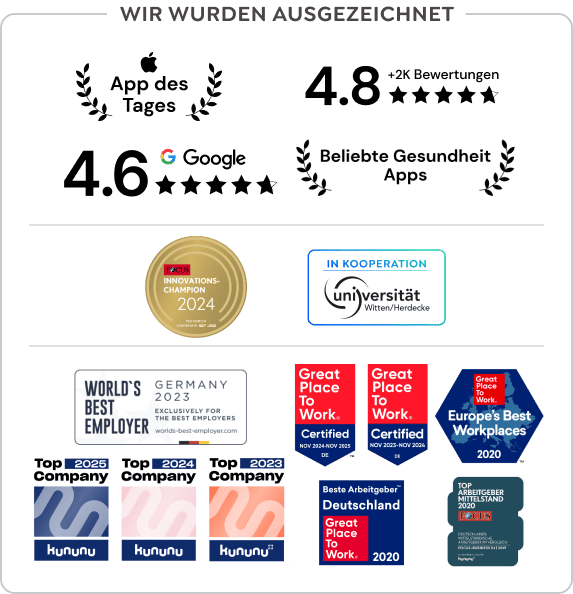| Refresh | This website greator.com/en/coaching-tools/ is currently offline. Cloudflare's Always Online™ shows a snapshot of this web page from the Internet Archive's Wayback Machine. To check for the live version, click Refresh. |

In coaching, various methods are used to support a coachee. These include the coaching tools. As important tools, these instruments are used in a targeted manner.
There are solution-oriented, resource-oriented as well as coaching tools that are suitable for particular situations. Most often, not only one technique is used, but a combination of different methods.
Coaching tools are development tools that support coaching practices. In this article, you will learn about the different types of coaching tools, their areas of application, and the advantages and disadvantages of these techniques.
Coaching offers help for self-help. The coach must adapt to different people and act extremely flexibly. Every client is different. That is why coaching tools are chosen with care.
What are coaching tools anyway? These techniques can be compared to tools of the trade. Unlike hand tools, coaching tools are used for communication as well as personal development. They are formats and methods that are used during a coaching situation.
In the course of a coaching conversation, one or more coaching tools are used. With concrete instructions, your coach supports you in becoming active in order to achieve your goals. Coaching tools are aids that you also use yourself. In most cases, the procedures are tried and tested and have proven themselves in similar situations over a long period of time.
Coaching is about understanding one's own personality and discovering new perspectives. Appropriate techniques and concepts are used to overcome internal blockages or external obstacles. The instruments used in this process are called coaching tools.
These tools represent the "equipment" of a coach. Coaching tools can be, for example, special questioning techniques, affirmations or personality models. The intervention techniques are used to work out the client's concern. Appropriate coaching tools are also used when setting the coaching goal as well as during the coaching sessions.

Coaching tools are distinguished between different categories. The most important are:
These tools are part of a coach's "toolbox".
Solution-oriented coaching tools are based on the desired result of the coaching. This can be, for example, a conflict that needs to be resolved. The search for a new job or a new perspective in life also fall into this category.
The mentor technique is a very efficient method to support searching people. It serves to find previously unused, because unknown resources. Imagine a problematic situation that you would like to change. As support you need a mentor.
Think of someone who meets these criteria. Put yourself in your mentor's shoes. Describe what advice this person would give you in each problem situation. Test the validity of the message by imagining actually applying it.
Questioning techniques are very often used in coaching. In this way, the coach gets to know your starting situation, your goals and any obstacles to their realization. What is important to you? What is important to you? In what time frame do you want to achieve your goals? Your coach wants to stimulate you to think by asking clever questions.
Alternative questions and concretization questions are components of the coaching question techniques. Targeted questions are used to prepare the actual coaching conversation. The scaling question technique is used to identify priorities as well as to bring about decisions.
This questioning method helps the respondent focus on what is important. Examples of scaling questions are: How do you evaluate your current situation compared to before? - How would it feel if the goal of the coaching was achieved?
Personality models are used to understand one's own behavior. Recognizing personal strengths and weaknesses is an important aspect of competence development and self-development. A Career Coachwho accompanies and supports people in their professional development, uses personality models as coaching tools. With self-reflection, the recognition and dissolution of mental blocks, you will be guided to your inner development.
Feedback is one of the core elements in coaching. Sound feedback promotes communication between coach and client. The most popular method is positive-negative feedback. In this method, not only constructive criticism is practiced. Feedback is also given on things and behaviors that have been noticed in a positive way.
An example of this is: The coach mentions that your behavior is still characterized by insecurity. At the same time, you are praised for your progress in addressing problems directly and for your creative suggestions for improving your behavior. Problem solution praised.
Coaching tools are used in different situations. During the initial meeting with your coach, various questioning techniques are used. Through appropriate questions, your concerns and the goal you associate with the coaching are clarified. Basically, coaching tools are important aids that can be used in most of the Coaching methods to be applied.
In career coaching, personality models are used to better assess the client's potential. Systemic coaching is about keeping the big picture in mind. Asking specific questions helps to focus on the essentials and not get lost in details.
Discovering and developing competencies is an important task in executive coaching. Spontaneous decision-making should not be a personal problem in a leadership position. The headwind method helps when you are literally sitting between two chairs when making decisions.
In this approach, you alternate between thinking about the argument for and the argument against. This way you are better able to make decisions.
Motivational strategies are helpful in many situations. As development tools, motivation-enhancing methods are used in career coaching, self-coaching and personality coaching.
The applications of coaching tools have many positive effects. The main benefits of coaching tools are:
The interaction between coach and client determines the success of a coaching session. Coaching tools such as the questioning technique or feedback can improve communication. Your coach should give you feedback on a regular basis. At the same time, it is also important for your consultant to know how the coaching is assessed by you.
A great advantage of coaching tools is that the appropriate technique causes more motivation. When you are motivated, you will be more active in coaching and achieve your goals faster. Autosuggestion is a way to influence your thoughts, feelings and actions only through your thoughts. Motivate yourself by having the basics of autosuggestion explained to you.
With the help of coaching tools, your progress can be analyzed and precisely tracked. The value analysis recognizes successes, but also deviations. An efficient planning of further coaching sessions is possible after the development processes have been evaluated accordingly.
Coaching tools are concrete instructions for action. Can they still have disadvantages or limitations? Unsuitable coaching tools prove to be of little help. Coaching tools should support the coaching. In this context, disadvantageous would only be coaching tools that do not fit the topic or do not correspond to the personality of the coachee.
Communication techniques, for example, are not suitable for strengthening one's own personality. It is difficult to use a coaching tool if the coach has too little background knowledge about the underlying method. To avoid this, a preliminary inquiry about the coaching tools used is certainly useful.
Different coaching practices require different coaching tools. Which criteria are important for the selection of the right coaching tools? The decision is made according to the impact, effect factors and effectiveness of the respective intervention techniques.
Depending on the specific situation of the client, certain coaching tools may be suitable, while others are not. It is also possible to combine different tools. These have to be selected according to the situation, the setting, the occasion and the topic.
Behavioral change can be achieved with elements from cognitive behavioral therapy. Systemic coaching as well as the methods derived from "The Work" method of examining thoughts, known by Katie Byron, can help change the way of thinking and behavior.
Are there ways to minimize or avoid disadvantages with coaching tools? If you are a coach yourself, acquire a solid knowledge of the different techniques. Avoid manipulative techniques. Make sure that the coaching tools you use are consistent with the goals of coaching and the coaching method.
As a client of a coaching session, you should ask questions if the process seems strange to you. Good communication between coach and coachee is the most important prerequisite for success!



